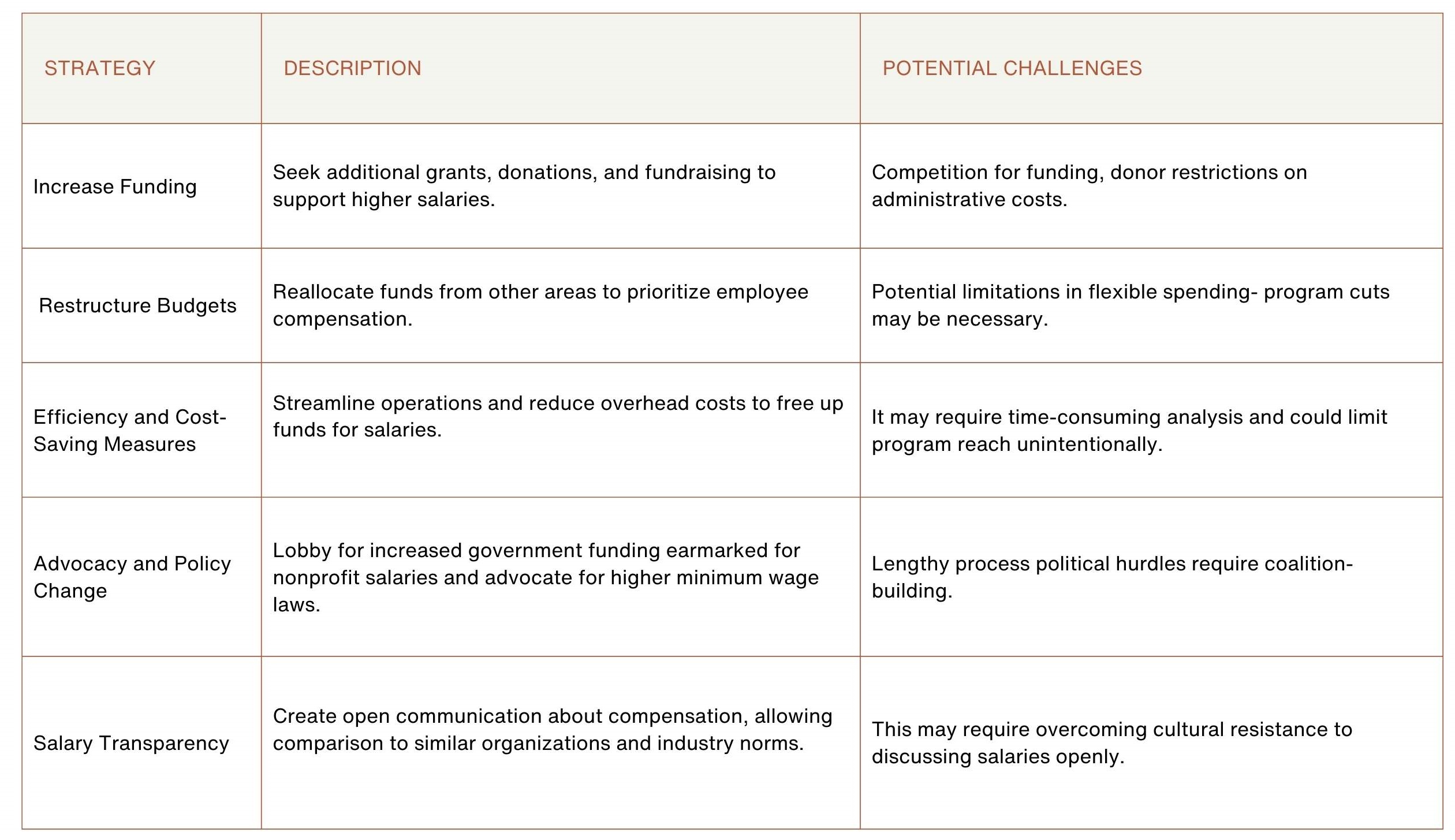The Ethical Necessity of Providing Nonprofit Workers with a Living Wage

The pursuit of noble causes often demands personal sacrifices from those who dedicate their lives to them. While the central focus of a nonprofit organization lies in addressing social, environmental, or humanitarian concerns, this mission cannot negate the responsibility of providing its employees with a wage that allows them a basic standard of living. The sustainability of a nonprofit is inextricably linked to its ability to compensate its workforce fairly. An organization that cannot meet the fundamental needs of its staff is, in essence, compromising its ability to achieve its long-term goals.
The consequences of underpaying nonprofit workers extend beyond individual hardships. Talented and passionate individuals may be deterred from pursuing careers in the nonprofit sector, leading to a shortage of qualified personnel.
High employee turnover due to financial instability can disrupt operations and create additional costs. Conversely, investing in a living wage demonstrates a nonprofit's commitment to its people, fostering loyalty and boosting morale. Let's discuss more.
Nonprofits - Essential to Communities and the Economy
At the heart of every nonprofit's mission is the desire to effect positive change in the world. Whether it's combating poverty, promoting education, or advancing environmental conservation, these organizations aim to make the world a better place. This aspiration cannot be divorced from the welfare of the individuals working tirelessly to bring about this change.
Did you know there are over 1.5 million registered nonprofits in the United States alone? These organizations employ over 10% of the country's workforce and contribute trillions of dollars to the economy each year.
The Nonprofit Wage Gap - A Call for Change
The nonprofit sector relies heavily on the dedication and passion of its employees. These individuals often choose to work in the nonprofit world because of their deep-seated commitment to the organization's mission. Passion alone cannot put food on the table or pay the rent.
The notion that those working for a nonprofit should be content with meagre wages due to their altruistic motivations is both misguided and unjust. Here's why -
1. The Wage Gap - Nonprofit workers earn substantially less than their for-profit counterparts. A study by the Nonprofit Finance Fund found that nonprofit professionals can make up to 33% less in comparable positions.
2. Talent Drain - Low wages dissuade skilled individuals from pursuing careers in the nonprofit sector, creating a talent shortage that ultimately harms the causes these organizations serve.
3. High Burnout - The combination of demanding work and insufficient compensation leads to high rates of burnout among nonprofit employees, further diminishing the sector's effectiveness.
4. Equity and Sustainability - Fair compensation is not just a matter of financial stability but a reflection of how much nonprofits value their employees' work. Offering competitive wages is imperative for building a sustainable and equitable workforce within the sector.
Ethics and Impact of Non-Livable Wages in Nonprofits
Paying employees below a livable wage perpetuates inequality and undermines the values nonprofits seek to uphold. It sends a message that the well-being of those working to address societal issues is less important than the cause itself. This mindset is morally reprehensible and counterproductive, leading to burnout, high turnover rates, and decreased organizational effectiveness.
Failing to provide a livable wage to employees can hinder diversity and inclusion efforts within nonprofit organizations. Individuals from marginalized backgrounds who already face systemic barriers to accessing higher-paying jobs may be further deterred from pursuing careers in the nonprofit sector if they cannot afford to support themselves or their families.
Strategies for Addressing Non-Livable Wages in Nonprofits -

Important Considerations
1. Feasibility - A comprehensive analysis of the budget, funding streams, and existing obligations is essential. Strategies designed without due consideration of these factors risk creating further hardships rather than alleviating them. This isn't merely a financial issue, but a question of operational capacity. Each solution, whether it involves budget restructuring, new fundraising initiatives, or re-envisioning of programs, must be evaluated for its practicality within the unique context of the nonprofit.
2. Sustainability - While the urgency of addressing underpaid staff is undeniable, implementing short-sighted solutions can create more harm than good. Nonprofits must resist the temptation of "quick fixes" that compromise the organization's ability to weather long-term challenges. Fair compensation strategies should be integrated into the core financial model. Seeking sustainable revenue sources, such as recurring donations or endowment funds, can create a reliable foundation for salary increases. Emphasis must be placed on solutions with the potential for growth, ensuring that the gains achieved today are not sacrificed for future instability.
3. Collaboration - The challenges of ensuring fair compensation for nonprofit workers are not unique to individual organizations. Building alliances with fellow nonprofits facing similar struggles presents an invaluable opportunity. Sharing knowledge and resources can reduce the strain on individual organizations. A unified voice advocating for policies that support the nonprofit sector as a whole – whether it's increased government funding or tax incentives for donors – holds the potential for far-reaching impact.
Collaboration extends to potential donors; nonprofits working on complementary missions can engage in joint fundraising ventures specifically focused on supporting the staff who drive their success.
Rethinking Compensation in Nonprofits for Fair Wages
Critics of paying higher wages within the nonprofit sector often argue that limited resources make allocating funds towards employee salaries difficult. While it is true that nonprofits often operate within tight budget constraints, this should not serve as an excuse for exploitation. Instead, it underscores the need for creative fundraising strategies, improved resource management, and a reevaluation of organizational priorities.
There are examples of nonprofits that have prioritized equitable compensation for their employees and have thrived as a result. By investing in their workforce, these organizations have cultivated a loyal and motivated staff who are better equipped to carry out the organization's mission effectively.
In conclusion
Success in the nonprofit world should not be defined solely by quantifiable outcomes, but also by its internal commitment to fostering well-being and respect for those who propel its work. When a nonprofit prioritizes the fair compensation of its employees, it upholds fairness and dignity, becoming a beacon of hope, demonstrating that a more just world begins within its own walls. This commitment acts as a catalyst, attracting passionate individuals, inspiring greater generosity from donors, and ultimately amplifying the organization's potential for lasting positive change.